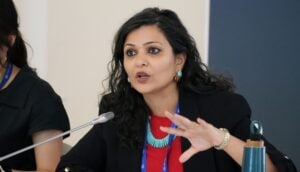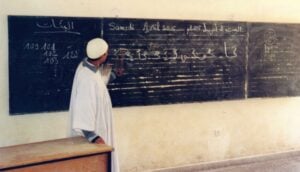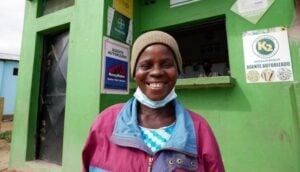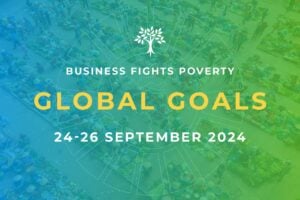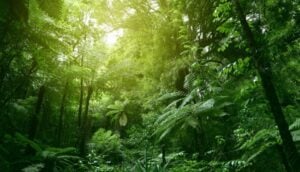We are taught at school if at first you don’t succeed, then try, try and try again, yet how many charities put this mantra into practice? Too many charities avoid risk and rarely admit failure, especially to their donors, which prevents them from learning from mistakes or revising their strategies. Yet charities have such huge potential for helping the world’s poorest and vulnerable out of poverty. With so much at stake, it’s worth asking whether there is another way of helping millions of people around the world.
International development charity SolarAid is different. Founded in 2006 to combat poverty and climate change by the UK’s largest solar company, Solarcentury, SolarAid benefits from 5% of the company’s annual net profits – with no strings attached. What does this mean?
The donation is allocated to projects of SolarAid’s choosing with no dictacts from Solarcentury as to how it’s used. Solarcentury chooses to provide support and advice rather than running interference and tying up resources. This means that SolarAid is allowed to try, fail, and try again. The result? Through its social enterprise SunnyMoney, SolarAid is now Africa’s largest seller of solar lights and in the last financial year doubled its fundraised income from £1.1 to £2.2 million.
Here’s how “no strings” corporate philanthropy has helped SolarAid to transform the lives of over eight million people to date, and commit to the audacious goal of eradicating the kerosene lamp from Africa by the end of this decade.
Failure comes before success
Solarcentury’s donations to date of almost £0.5m and commitment to support the charity – whatever its direction and strategy – gives SolarAid room to fail as well as to understand what success looks like and how to achieve it.
In 2009, SolarAid manufactured solar products in Africa – at a huge cost – and fitted panels on schools and clinics. Results were slow, progress unsustainable, and communities were often left with complicated systems without the expertise or money to maintain and repair them.
However, Solarcentury didn’t cut funding because things weren’t going fast enough – it honoured its commitment which allowed SolarAid to explore new ideas and approaches. The same year, a breakthrough took place: a group of head teachers in Kenya encouraged parents to buy solar lights so their children could study at home in the evenings after dark. SolarAid sold more lights in that weekend than in the entire year before – and a new strategy was born.
Stay agile
When SolarAid saw the potential for schools to build sustainable markets for solar lights, it quickly moved resources and focus to back this new approach. Thanks to the organisation’s agility a new social enterprise was born within a year; SunnyMoney. In rural communities, there is little trust or knowledge of solar energy, poor infrastructure and only basic retail networks. The first essential step to create a sustainable solar light market is to create trust. Families need to see the benefits of solar before they part with their money.
SolarAid’s model is simple. The charity builds trust by recruiting local Headteachers – respected community leaders – to show families the benefits of solar and sell lights at a fair market price. Swapping a kerosene lamp for a £5 solar light, which lasts 3-5 years, means parents no longer have to tell their children to stop studying just because they cannot afford kerosene. This ‘Schools Campaign’ sparks interest across the community in the educational, financial and health benefits of solar. Once sufficient trust and demand is built for the product, SunnyMoney distributes lights directly through local entrepreneurs; creating jobs in the process.
SolarAid aimed to sell 100,000 solar lights in Africa by 2013. Yet by March 2014, SolarAid had sold ten times as many and the milestone millionth solar light was sold – transforming the lives of more than eight million rural Africans. Today, SunnyMoney is the largest distributor of solar lights to people in Africa.
It’s an outcome that few could have predicted, not least Solarcentury staff. I remember one employee commenting that they couldn’t see how SolarAid’s business model would take off. Yet the structure has brought multiple benefits and the “no strings” funding allows SolarAid’s small team to be flexible and adapt easily to the needs of its beneficiaries. Spending less time following rigid programme plans and reporting on pre-arranged targets means employees can instead focus more on executing SolarAid’s mission, resulting in exponential growth. Solarcentury lends support in the form of advice and practical support, while giving SolarAid’s staff the freedom to apply their own knowledge and expertise. And, with this agility, SolarAid can execute its strategy with a lean head office.
We know we’re well structured since the number of lights sold has risen steeply despite only a gradual increase in employees:
“No strings” funding from Solarcentury allows SolarAid to be brave. Just as SolarAid’s business-based approach to alleviating poverty in Africa turns traditional aid on its head, so too does the charity’s fundraising focus. Fundraising is not about getting the most money from donors; we believe it is about inspiring people to champion a cause and tell their friends. SolarAid won’t barrage you with mailings, or ask for your credit card details on the street. Why treat someone as a donor, when they could be so much more: a donor, volunteer, blogger and door-opener?
To make the biggest possible impact, SolarAid set a time-bound goal: to eradicate the kerosene lamp from Africa by 2020. Today, every fibre of the organisation is dedicated to making this vision a reality. In 2013 fundraised income doubled from £1.1m to £2.2m and, in January of this year, the Big Issue featured SolarAid and SunnyMoney at the top of its list of ‘Big ideas of how to make the world better in 2014’. What do these achievements have in common? They link back to SolarAid’s BHAG – that’s ‘Big Hairy Audacious Goal’ to you and me – and Solarcentury’s unconditional financial support and enthusiasm.
Innovate for impact
Although we are not obligated to report in detail on rigid programme plans, we are firmly committed to monitoring our performance, a task undertaken by our Research and Impact Team. This department tracks are success and failure against agreed metrics, and will continually test and refine SunnyMoney’s business model. New ideas include innovative pay-as-you-go solar lights; reaching the poorest Africans, for whom the cost of a solar light is out of reach, with products costing the same or less than their current weekly expenditure on kerosene. SolarAid’s research on the social, environmental and economic impact made by solar lights is recognised as world-class by partners such as the World Bank and, in 2013, won the Google Global Impact Award. Families who switch to solar:
● Save $43 a year – to spend on food, clothes, school fees or setting up their own business.
● Prevent up to 300kg of CO2 emissions and black carbon (soot) from being released into the atmosphere.
● Improve their children’s education – when the sun goes down, children can study for an extra hour a day, freed from the headaches and eye strain caused by lighting supplied by toxic kerosene.
These figures demonstrate the positive impacts of SolarAid’s work, underscoring the need for a solution, the opportunity for SolarAid to make a difference to the lives of millions, and the evidence that its business-based approach really works. We will not eradicate the kerosene lamp by 2020 without failing and learning from our mistakes along the way. It takes a new model of philanthropy to make this happen and we believe it represents the next stage in the evolution of funding for social good. Will your company be the next to join?



